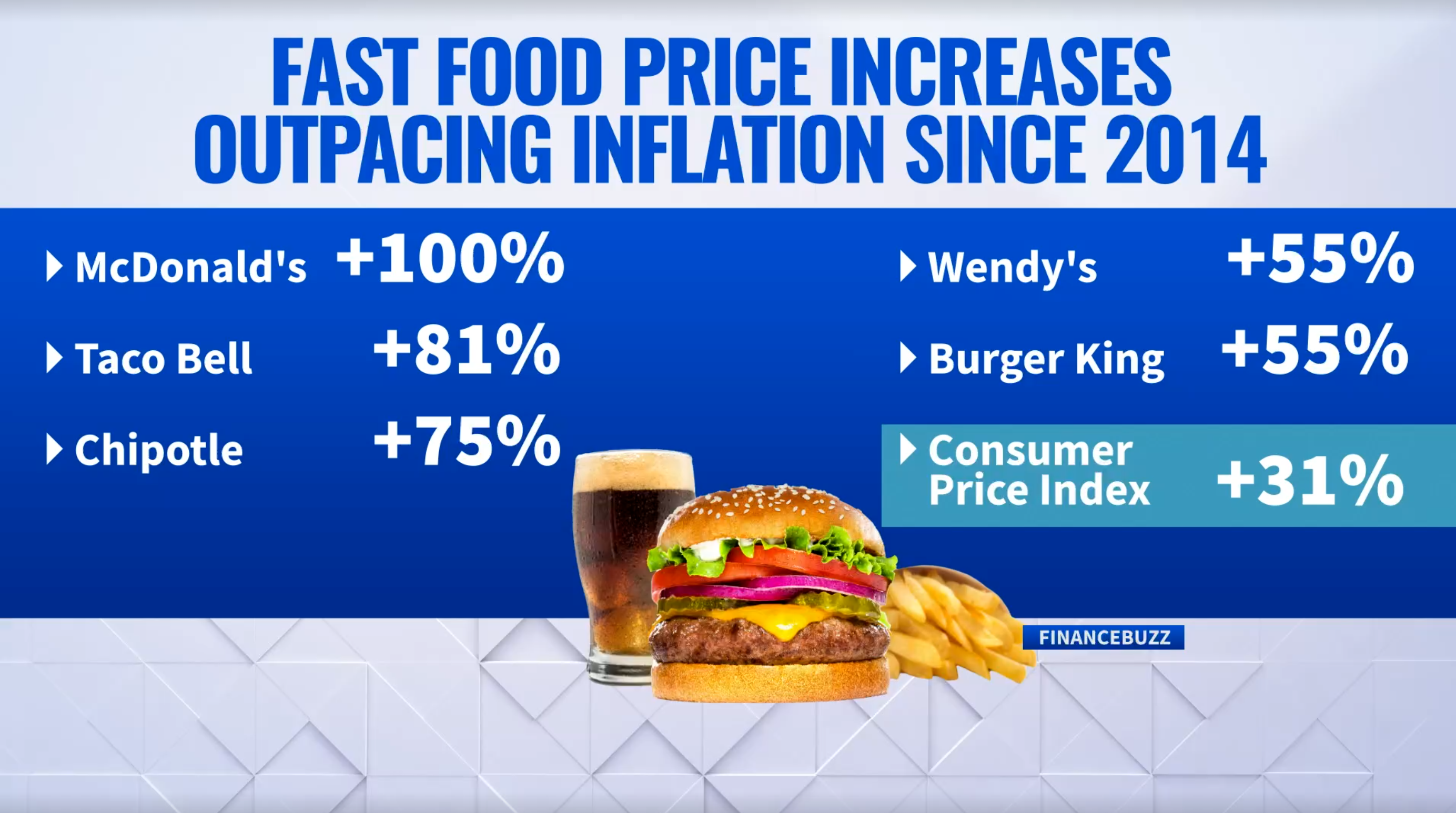Prices at fast food restaurants increased at a rate that far exceeds inflation over the last decade, according to a new analysis from FinanceBuzz.
According to the newly released data, leading fast food restaurants increased prices by about 60% between 2014 and 2024. That is nearly double the rate of inflation.
According to the consumer price index, the general cost of goods and services has gone up 31% in the past decade.
The data shows that prices have doubled at McDonald's over that time. FinanceBuzz noted that the average price of a McDouble increased from $1.19 in 2014 to $3.19 currently. A medium fry has gone up from $1.59 to $3.79.
SEE MORE: California fast food workers now make $20 minimum wage
Earlier this year, McDonald's said that it planned to reemphasize affordability in an effort to bring back low-income customers.
"Providing our customers with affordable options has always been core to our brand, and it's even more important as consumers feel pressure on their spending, particularly the lower-income consumer," Ian Borden, McDonald's chief financial officer, said earlier this year. "We continue to listen to our customers by evolving our value offerings, maintaining strong perceptions in value for money and affordability."
Other fast food chains also had major price hikes. Here is a look at how much prices have gone up at other chains, according to FinanceBuzz:

According to the Bureau of Labor Statistics, the cost of dining out has increased 47% from the start of 2014 through early 2024. Meanwhile, food consumed at home has gone up a mere 30%
The data indicates that eating at home is gaining higher value over eating fast food.
Daniel Roccato, clinical professor of finance at the University of San Diego, said in FinanceBuzz's report that labor is a significant factor. The comments come as fast food workers in California began receiving a $20 minimum wage on Monday.
"It’s all about labor. Commodity price increases have moderated but labor costs keep climbing. A tight labor market and higher minimum wage laws are a one-two punch for employers," Roccato said.
FinanceBuzz's full report is available online.
Trending stories at Scrippsnews.com



